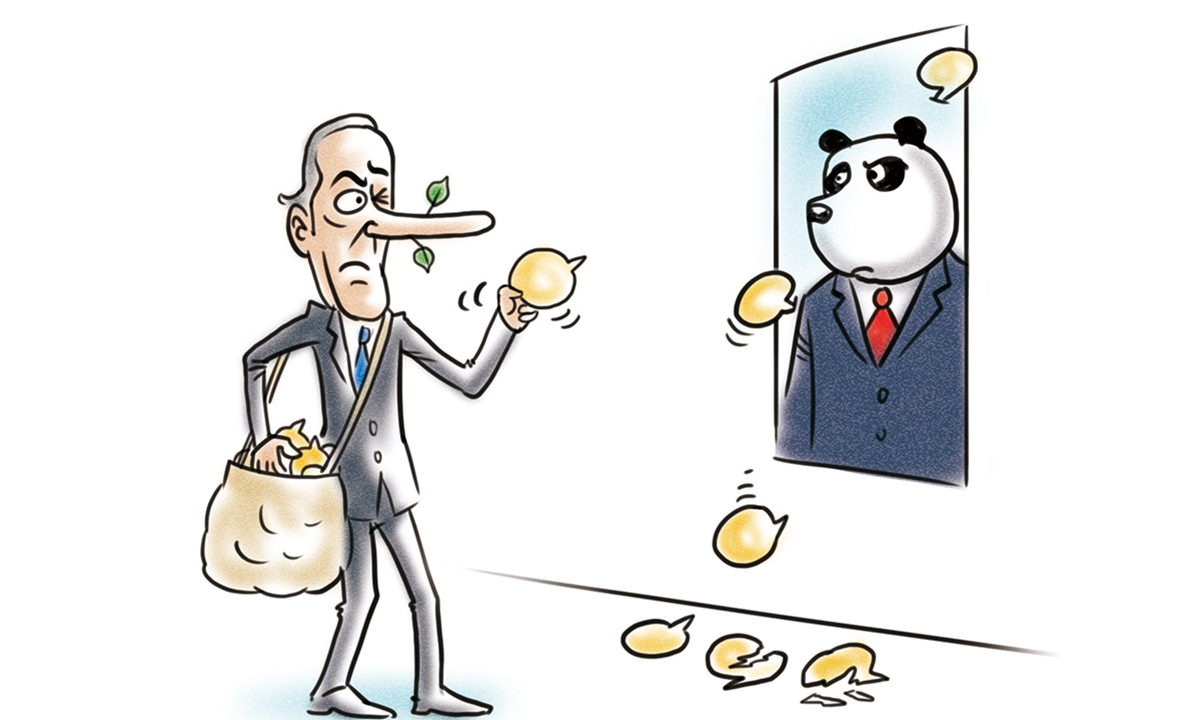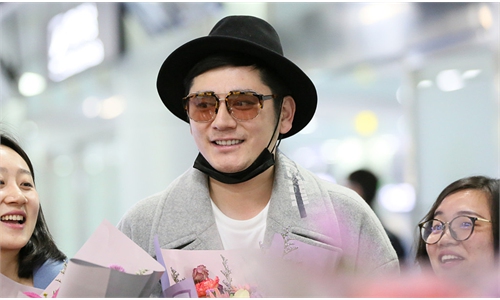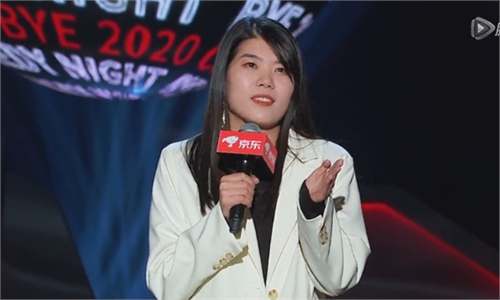West's undisguised intention of using MeToo movement to create antagonism in China

Illustration: Liu Rui/GT
The so-called #MeToo movement has been introduced to China from the US in recent years. However, there are more evidences showing that the movement's real purpose in China is not to focus on opposing sexual harassment and promote gender equality. Under the disguise of a "grassroots movement based upon breaking silence," it is in fact a movement to instigate chaos, division and even subversion in China.The case related to Zhu Jun, one of the most recognizable faces on Chinese television, and Zhou Xiaoxuan (also known by her online name Xianzi), an intern used to work on Zhu's show, has been regarded as landmarks of China's #MeToo movement. In the latest update since the case was exposed to public three years ago, the People's Court of Haidian District in Beijing on Tuesday rejected Xianzi's claims of being sexually harassed by the anchor.
Unsurprisingly, the result has been widely reported in a sensational way by mainstream media in the West. Reuters titled a report "Chinese court rules against #MeToo plaintiff;" CNN ran one titled "An intern took on one of China's biggest TV stars in landmark #MeToo case. She lost, but vowed to fight on;" and the New York Times (NYT) titled an article, "China #MeToo figure vows to appeal after losing landmark case." The NYT report even said that "in China's increasingly chilly political climate… officials are wary of any complaints outside channels they can strictly control."
By using such kind of wording and discourse, some Western media and hidden forces are trying to connect the #MeToo movement with Chinese politics. Before the first hearing of the case in December 2020, some foreign media including the Washington Post, BBC and the Wall Street Journal published lengthy reports to cover the case. During the first hearing, more than 100 of Xianzi's supporters gathered outside of the court in an organized way, some even holding signs demanding "an answer from history." This is a typical "court of public opinion."
It takes solid evidence, not mere accusations, to confirm a rape case. For example, Chinese police launched a probe into a sexual misconduct case involving a female employee working at Chinese e-commerce giant Alibaba in August. She reported she was sexually assaulted and raped by a senior employee during a business trip. However, police eventually announced that no evidence had been found that the woman was raped.
"In China, the #MeToo movement aims at creating antagonism between genders and among certain groups, tearing up the society and triggering political turmoil rather than solving real problems. Some #MeToo activists regard sexual harassment cases as their tools to instigate Chinese people's anger," Shen Yi, a professor at the School of International Relations and Public Affairs of Fudan University, told the Global Times.
Under many circumstances, feminism has gone to an extreme on Chinese social media platforms such as Weibo. Some so-called women's rights advocates seek to incite gender antagonism even under irrelevant topics. Because of these people, many netizens have played on the Chinese word nüquan, or women's rights, replacing it with "women's fists" which is pronounced the same in Putonghua. These "advocates" are not really expressing their concerns. They are acting like internet trolls.
"But when the Chinese government tries to solve the problem, these advocates would put forward a series of requests which are neither sensible nor reasonable. Then, they in turn smear the Chinese government with the support of foreign media, which have an advantage in international discourse power," Shen said.
The #MeToo movement is closely linked to foreign forces, and is also taken advantage of by some anti-China groups or figures. For example, Huang Xueqin, the "#MeToo activist, women's rights activist and independent journalist in China" - as introduced on her Wikipedia page - initiated a survey on Chinese women journalists' experience on sexual harassment in 2017. While in 2019, Huang participated in the anti-extradition bill protests in Hong Kong. She also wrote an online article about her experience, beautifying the violent protests as people pursuing "freedom."
In fact, the #MeToo movement has not played a positive role in opposing sexual harassment in China. Nor has it provided any practical solution in any sense. Some Western forces are extremely despicable for trying to use the movement to tear Chinese society apart.
Anti-sexual harassment is an important part of social governance that must be perfected in any society. Indeed, there are still sexual harassment and gender discrimination issues in the Chinese mainland. More and more Chinese people have realized the importance and urgency of resolving these problems.
Some Western media outlets are deliberately trying to use the #MeToo movement as a tool to incite gender antagonism and even a "color revolution" in China. But Chinese people have the ability to tell what is real and what is transgression in camouflaged clothes. China is a country with sound, open and transparent legal mechanisms. Whoever offends the law will be punished, but not in unreasonable ways. Especially when certain ways are used by people with ulterior motives.
The author is a reporter with the Global Times. opinion@globaltimes.com.cn



